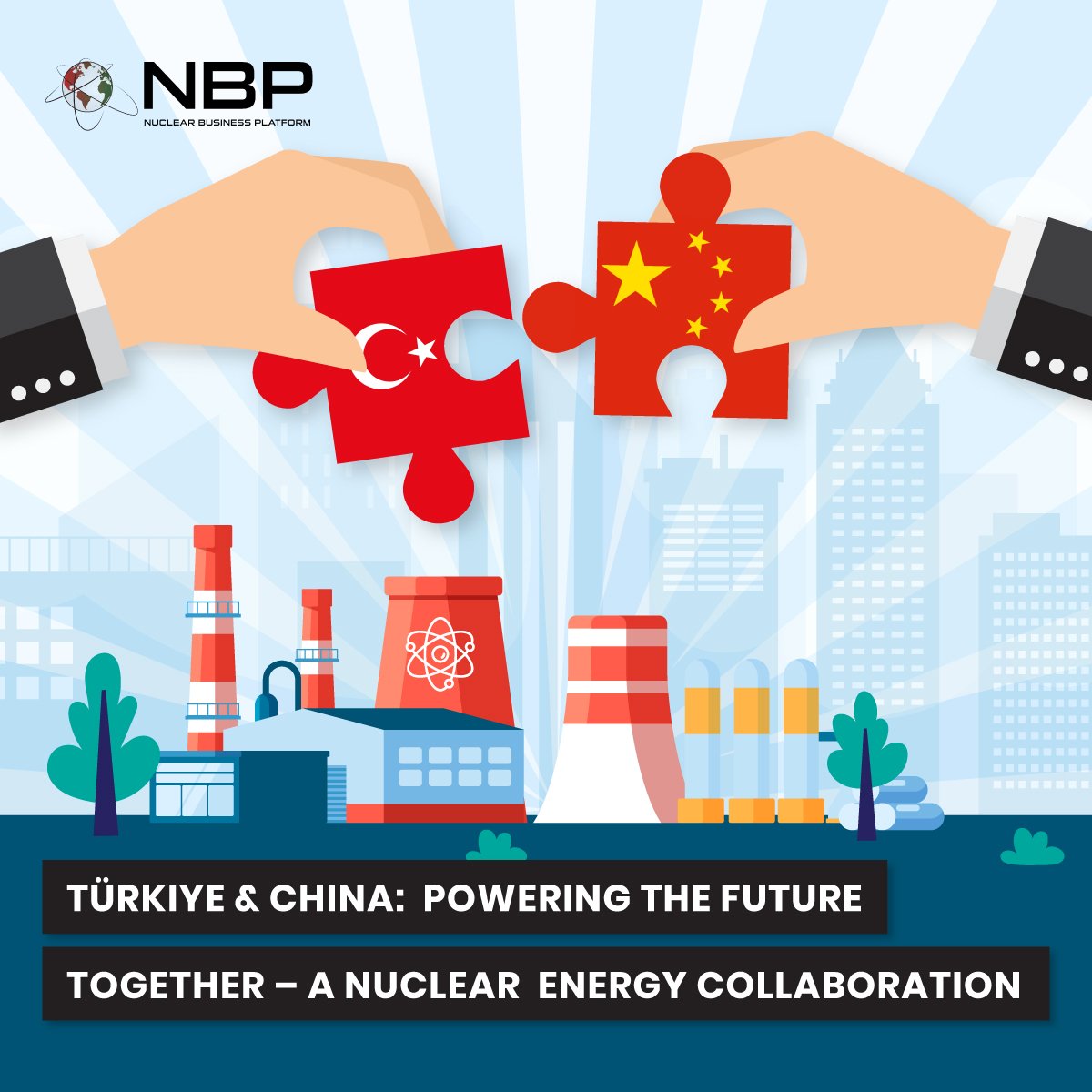Türkiye & China: Powering the Future Together – A Nuclear Energy Collaboration
Türkiye is on the cusp of a nuclear energy revolution, with ambitious plans to generate 20 gigawatts (GW) of nuclear power by 2050. This includes not only large-scale nuclear power plants (NPPs) like the Akkuyu project already underway, but also a significant investment in smaller, more flexible Small Modular Reactors (SMRs). This aggressive expansion means a wealth of opportunities for construction, technology, and expertise.
China has expressed a keen interest to construct the nuclear power plant in Thrace which will be Türkiye’s third nuclear power plant. Chinese company, State Power Investment Corporation (SPIC) is leading this Turkish initiative.
Driven by the corporate mission of creating green Values, SPIC has become the world’s biggest solar power producer, biggest renewable energy producer, and biggest clean energy producer. By now, clean sources account for 70 percent of SPIC’s 238.65 GW total capacity, making SPIC a significant contributor to the world’s low and zero carbon goals.
As a licensed developer and operator, SPIC now owns and operates a fleet of 8 reactors. Shanghai Nuclear Engineering Research & Design Institute (SNERDI), an SPIC subsidiary, is building six Gen-III advanced reactors as an EPC contractor now. Among them, two CAP1400 units will be ready to COD at the end of 2024. At the same time, SNERDI is preparing for the commencement of 4 more units this year in southern China.
Collaborations between China and Türkiye in the Energy Sector:
The most notable example is the Emba Hunutlu power station, a 1320 MW coal-fired power plant located in Adana Province. Completed in 2016, it represents the largest Chinese foreign direct investment in Türkiye to date. The plant's construction was undertaken by a consortium of Chinese companies, including Power China and Shandong Electric Power Construction Corporation. Emba Hunutlu has significantly contributed to Türkiye's energy supply, providing electricity to millions of households and businesses across the country. The project has also fostered economic cooperation between the two nations, with Chinese companies playing a crucial role in technology transfer and job creation.
It's worth noting that Chinese companies have also been involved in other energy projects in Türkiye, such as the Çalık Enerji thermal power plant in Çanakkale, which was constructed with the participation of Chinese state-owned enterprises. These projects have not only contributed to Türkiye's energy mix but have also fostered economic cooperation and technological exchange between the two countries. Furthermore, Chinese companies have been active in Türkiye's renewable energy sector, particularly in solar and wind power. This growing presence in various energy domains highlights the potential for further collaboration and investment in the Turkish energy market, especially in the nuclear sector.
China's Nuclear Powerhouse Status:
China has emerged as a global leader in the nuclear energy sector. With over 50 operational nuclear reactors and a robust domestic supply chain, China boasts a wealth of experience across all aspects of nuclear power development. Key aspects of China's nuclear sector include:
Advanced Reactor Technology: China is actively developing and deploying next-generation reactor designs, including the CAP1400. This is a domestically designed and manufactured 1400 MWe pressurized water reactor, based on the AP1000 technology with significant improvements in safety, efficiency, and localization.
Proven Construction Expertise: China has a proven track record of constructing nuclear power plants efficiently and on schedule. Their experience in large-scale infrastructure projects translates to cost-effectiveness and a focus on high safety standards.
Comprehensive Fuel Cycle Management: China has developed a strong domestic capability for all stages of the nuclear fuel cycle, from uranium mining and enrichment to fuel fabrication and waste management. This reduces reliance on external suppliers and ensures long-term fuel security for nuclear programs.
Benefits for Türkiye:
By partnering with China, Türkiye can leverage the immense benefits offered by its robust nuclear sector:
Access to Cutting-Edge Technology: Collaboration with Chinese firms can provide Türkiye with access to advanced reactor designs like the CAP1400, materials, and construction techniques. This will ensure Türkiye's nuclear program remains at the forefront of technological advancement and efficiency.
Cost-Effective Solutions: Chinese companies are known for their competitive pricing and efficient project execution. This translates into cost-effective solutions for Türkiye's nuclear program, ensuring affordability and sustainability in the long run.
Integrated Supply Chain: China's well-established domestic nuclear supply chain can provide a reliable source of critical components and equipment for Türkiye's nuclear power plants. This reduces dependence on foreign suppliers and ensures timely project completion.
Knowledge Transfer and Capacity Building: Collaboration with Chinese firms can create opportunities for knowledge transfer and capacity building within the Turkish nuclear industry. This will empower Türkiye to develop a skilled workforce and foster long-term self-sufficiency in nuclear power development.
A Future of Collaboration
The potential for collaboration between China and Türkiye in the nuclear energy sector is immense. By working together, both countries can achieve their strategic energy goals, foster economic growth, and contribute to a cleaner and more sustainable energy future.
Don't miss out on this unique opportunity to be a part of Türkiye's nuclear energy future!
Türkiye Nuclear Energy Company (TÜNAŞ) has been designated by the Turkish government as the future owner and operator of new build NPP’s in Türkiye including SMRs. TÜNAŞ will host the Türkiye Nuclear Business Platform in Adana this October and will provide further insights on future SMR developments in Türkiye.



